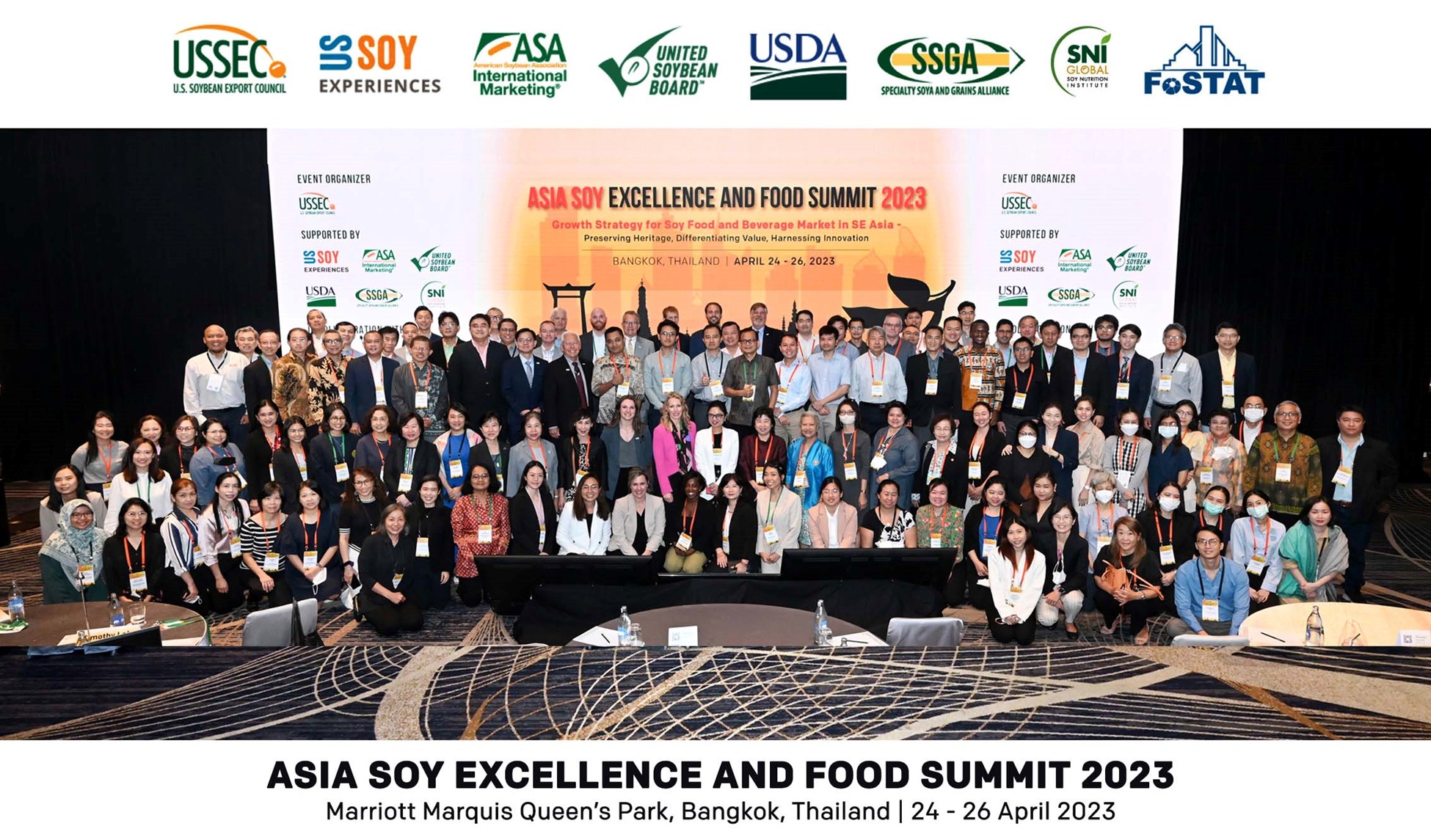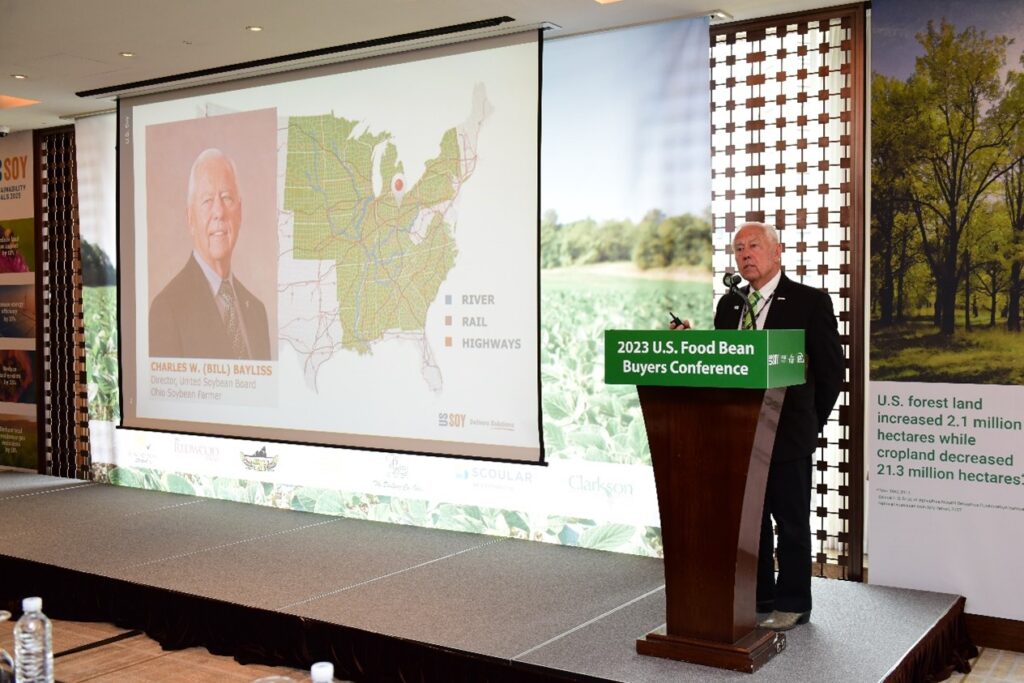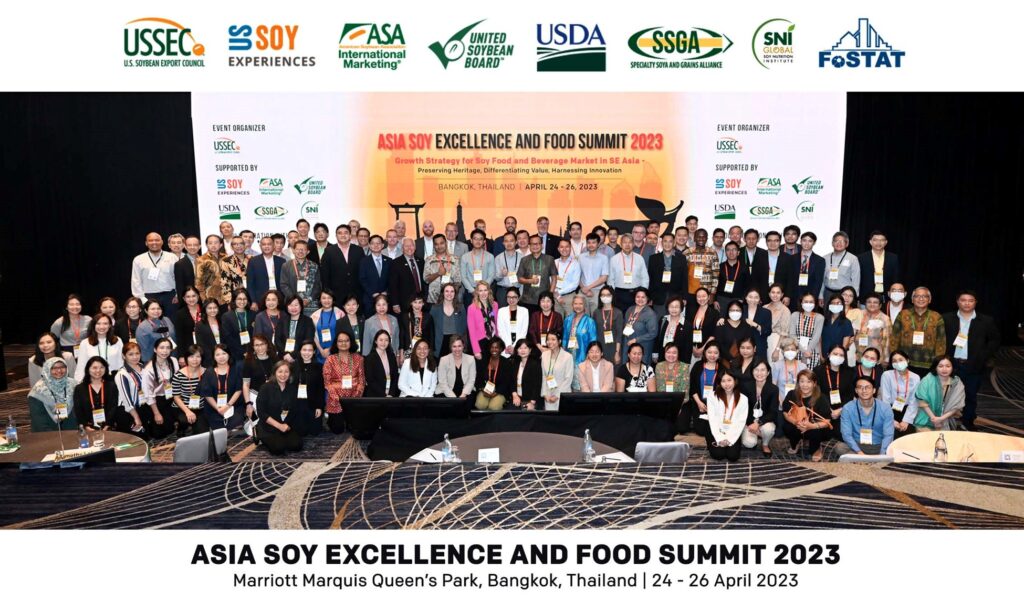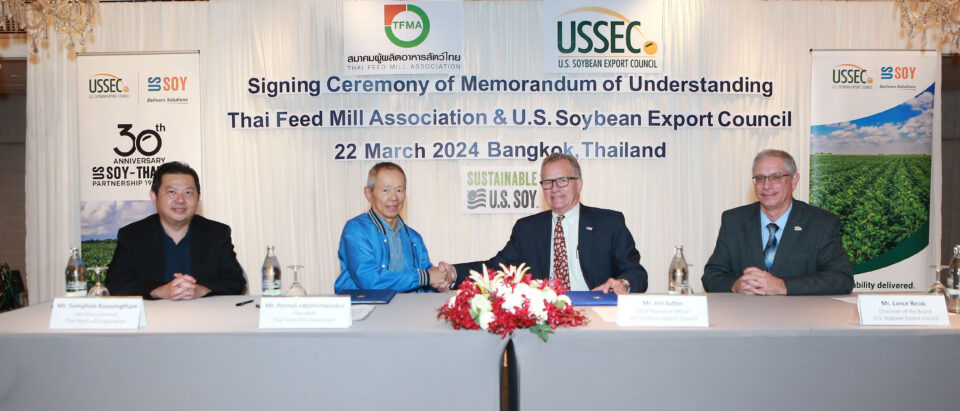
Soy is an integral part of Asian cultural and culinary heritage. The U.S. Soy industry works to deliver high-quality, sustainable, affordable soybeans to meet current and growing future demand for both traditional and new soy food products in Asian markets.
To highlight these efforts, USSEC hosted two conferences in Asia during April that allowed soy food manufacturers to meet one-on-one with U.S. suppliers. Both events, supported in part by the soy checkoff, emphasized the benefits of soy foods and the importance of sustainability.
“U.S. Soy farmers and industry experts shared timely market updates with soy food bean buyers,” says Will McNair, director of oil and soy food programs and deputy director of Northeast Asia for USSEC. “Participants showed strong interest in following up with the suppliers they met, evidence of how USSEC conferences strengthen business relationships and confidence in the value of U.S. Soy.”
The annual U.S. Food Bean Buyers Conference in Seoul, South Korea, on April 20, welcomed about 60 participants representing 24 soy food companies. In addition to the latest market updates and soy food bean identity preservation practices, attendees had the opportunity to meet one-on-one with representatives from six U.S. Soy exporters.
Another 125 industry leaders attended the Asia Soy Excellence and Food Summit 2023, held in Bangkok, Thailand, April 24 to 26. During this event, soy food and beverage manufacturers met one-on-one with eight U.S. Soy suppliers, either in person or virtually.
“U.S. Soy provides quality differentiation, product consistency and sustainability advantages that benefit our customers,” McNair adds. “Our events enabled direct, personal conversations that reinforce these benefits while connecting buyers with suppliers.”
One of those advantages is the ability to purchase soybean backed by the U.S. Soy Sustainability Assurance Protocol, or SSAP. Soy food manufactures can have documentation that the soy they source from the U.S. was produced in line with defined standards. They can also choose to work with USSEC to add the Sustainable U.S. Soy logo to their products, a way to convey that commitment to sustainable sourcing to their customers.
“The relationships fostered through these soy food conferences connect the soy food supply chain, while emphasizing the role of U.S. Soy as a source of sustainable protein,” McNair says. “Such relationships lay the foundation for growing U.S. Soy market share throughout Asia.”


sustainability, sourcing, markets and crop conditions.

This story was partially funded by U.S. Soy farmers, their checkoff and the soy value chain.
# # #
